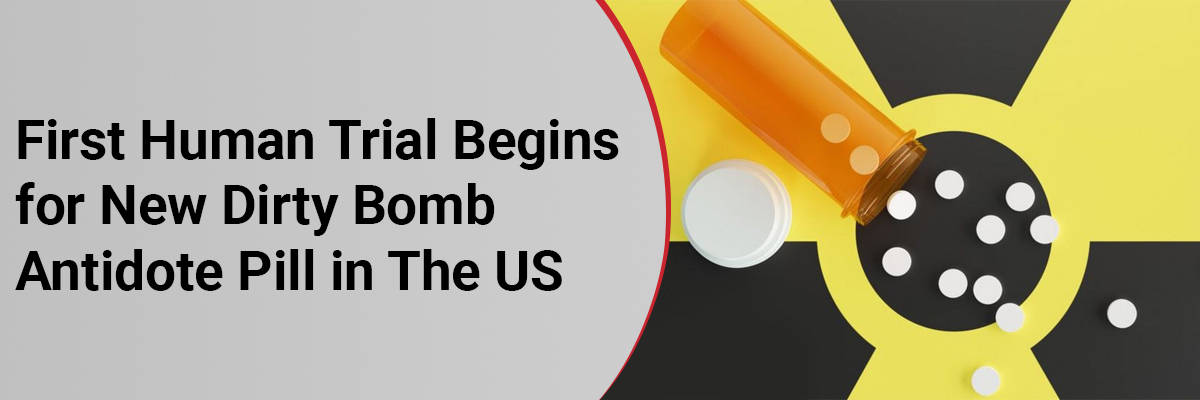
 IJCP Editorial Team
IJCP Editorial Team
First Human Trial Begins for New Dirty Bomb Antidote Pill in the US
The United States is launching the first human trial of a groundbreaking antidote pill designed to eliminate harmful radioactive contamination from the body. The drug, known as HOPO 14-1, can potentially combat various materials used in weapons, including uranium. If proven safe and effective, this medication could protect against nuclear accidents or terrorist attacks involving dirty bombs.
The trial, conducted by SRI International of Menlo Park, California, and funded by the National Institutes of Health, will involve approximately 42 volunteers who will be administered different doses of the drug. The study will closely monitor safety and side effects, with phase one results expected in 2024.
Dirty bombs, also called radiological dispersal devices (RDD), combine explosives with radioactive materials, causing contamination within the blast zone. The resulting radiation cloud from a dirty bomb is limited to a few blocks or miles, in contrast to the widespread impact of a nuclear bomb. Unlike nuclear bombs that cause mass destruction, dirty bombs are considered weapons of mass disruption.
Radiation exposure can severely affect DNA, tissues, and organs, leading to various illnesses, including cancer. An oral drug that effectively counteracts the effects of radiation would be a significant advancement. Currently, injectable drugs are already available to treat individuals exposed to specific radioactive elements such as plutonium, americium, or curium. Iodine tablets have been used to protect against radioactive iodine, and Prussian blue is utilized to remove radioactive caesium and thallium.
HOPO 14-1, if successful, would expand the arsenal of available medications by offering protection against uranium and neptunium in addition to plutonium, americium, and curium.
While no successful dirty-bomb attack has occurred to date, there have been documented attempts. In 1996, rebels from Chechnya planted a bomb containing dynamite and radioactive caesium-137 in Moscow's Izmailovo Park, which was later discovered and defused by security services. Similarly, in 1998, Chechnya's intelligence service found and defused a dirty bomb near a railway line in Chechnya.
The ongoing human trial represents a critical step towards enhancing preparedness and safeguarding against the potential dangers associated with radioactive materials in the event of a dirty-bomb incident.

IJCP Editorial Team
Comprising seasoned professionals and experts from the medical field, the IJCP editorial team is dedicated to delivering timely and accurate content and thriving to provide attention-grabbing information for the readers. What sets them apart are their diverse expertise, spanning academia, research, and clinical practice, and their dedication to upholding the highest standards of quality and integrity. With a wealth of experience and a commitment to excellence, the IJCP editorial team strives to provide valuable perspectives, the latest trends, and in-depth analyses across various medical domains, all in a way that keeps you interested and engaged.









.jpg)








.jpg)

Please login to comment on this article